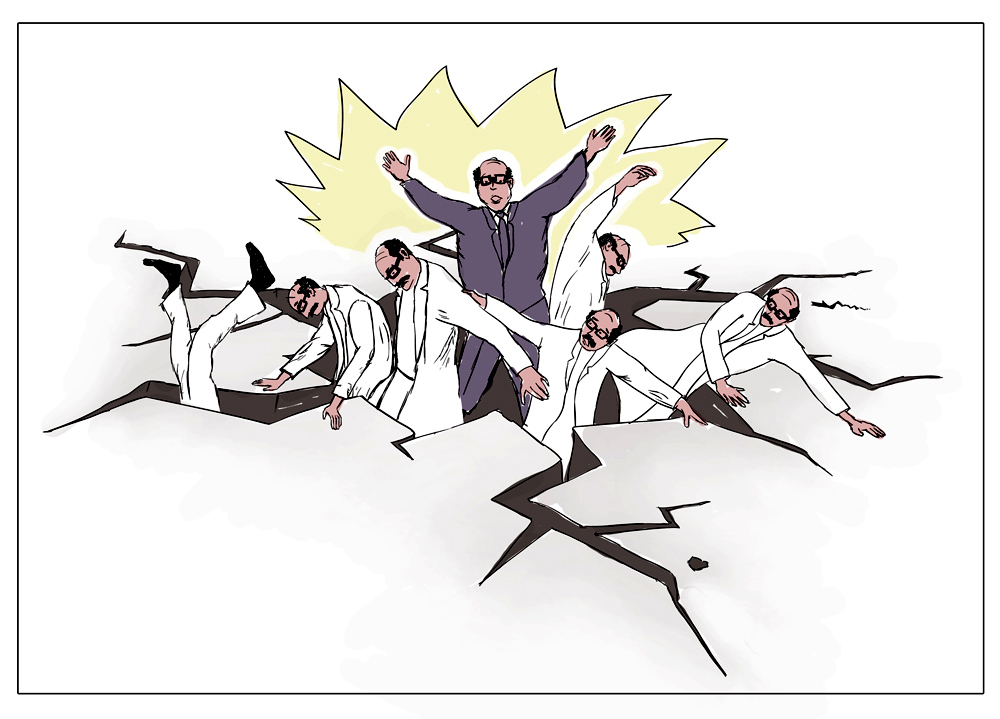Opinion: Why the L’Aquila scientists should not go to jail
A little over two weeks ago, six Italian earthquake scientists and one public official were convicted of manslaughter.
The biggest mistake people are making in discussions of the trial is seeing it as a politically or religiously motivated assault on science. At least one article has (absurdly) compared the defendants to Galileo. This kind of rhetoric is distracting because it makes people get emotional quickly, and they begin to yell at each other over things that are irrelevant to the actual issues at stake, which are barely scientific at all.
It has been stressed many times that the scientists were not on trial because of their failure to predict the earthquake (which, as far as we know, is impossible). The prosecutor and the victims’ groups had a very specific bone to pick with the Major Risks Commission: according to them, misleading statements from scientists and public officials led people to underestimate the risks and stay inside, rather than do what they would normally do in an earthquake scenario. This is an institutional issue and a communication issue – it has nothing to do with an actual or perceived war on science.
By all accounts the defendants actually did all the things they were accused of doing: they communicated poorly, if at all, and failed to carry out a thorough risk assessment. The public officials were concerned more with keeping people calm than informed and made reassuring statements laced with scientific gibberish in press conferences the scientists were not even told about. Clearly there were problems that need to be fixed in the future to prevent more tragedies of this scale. The prosecutor was not wrong about that. The judge’s verdict is an outrage not because there are no problems with Italy’s earthquake warning infrastructure, but because these problems are not criminal in nature.
James Bagian, a doctor and former NASA astronaut, was featured in Slate’s “The Wrong Stuff” interview series in 2010. Bagian spoke in his capacity as the director of the US Veteran Administration’s National Center for Patient Safety, and as a member of the committee that investigated the Challenger disaster. In the interview, he emphasized his “systems perspective” on risk management, both in medicine and aerospace. “We’re not terribly interested in what some individual did,” he said.
The example Bagian provided had to do with nurses accidentally administering the wrong medication to patients. It’s useless, he says, to punish the nurses or tell them to be more careful – even the best ones are bound to make some mistakes. Instead, the best solution is to ask why these mistakes happen.
“Maybe there were two drugs that looked almost the same. That’s a packaging problem; we can solve that,” remarked Bagian. “Maybe the nurse was expected to administer drugs to ten patients in five minutes. That’s a scheduling problem; we can solve that.”
Before instituting the use of barcodes for medicine, Bagian found that 7 to 10 per cent of all administrations involved an error in dose, patient, or route. After barcodes, that number dropped to 0.1 per cent.
Bagian’s “systems perspective” removes responsibility, fault, and all that fun Kantian stuff from the equation, focusing exclusively on cause and effect. This makes it seem rather cold, but it means that lives are saved and the system is able to constantly improve – doctors and nurses actually report their errors and close calls, knowing that no one will point and scream at them like in Invasion of the Body Snatchers.
So what does this tell us about Earth sciences in Italy? There seems to have been a sense that the Major Risks Commission meeting was just a formality, convened to reassure the people that Science was on the case. That’s an institutional problem.
There also appears to have been a basic divide between the scientists, whose job is to assess risk, and the laypeople who do not have a rigorous mathematical concept of what “risk” means. That’s a communication problem. Some scientists have voiced concerns about the methods Italy uses to predict earthquakes, and several have said that it’s not useful to focus on prediction at all, that strict building codes are far more important. These are scientific problems, and will have to be hashed out by specialists at obscure conferences.
All these problems can be fixed without dragging scientists away on dubious manslaughter charges. Even more importantly, if Italy drags the scientists away and does nothing else, these problems will remain in place and nothing will be accomplished. The system that allowed this to happen is bigger than any one of the people involved. If we want better earthquake risk assessment, it’s the system that will have to change, not the individual scientists.
ILLUSTRATION BY: Philipp Fisch





